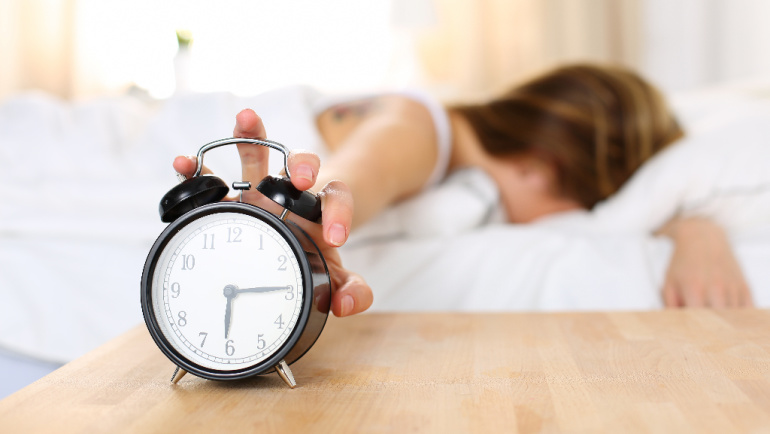
If you’re not getting a good night’s sleep, you’re not functioning at your best. Research shows that a lack of sleep may negatively impact your academic success, ability to concentrate, mental health and immune system. The Study Skills Academy has provided the sleep hygiene tips below and invites all students to a free virtual workshop, “Your Brain on Sleep,” on Tuesday, Jan. 26 at 6 p.m., where you will learn why sleep is so important, how to overcome common sleep disruptions and develop a plan to optimize your quality of sleep while learning from home.
1. Go to bed and wake up around the same time every day
Your body has a hard time adjusting to changes in your sleep habits. If you want to be consistently able to fall asleep, this is the best way to do it. Additionally, research shows that sleeping in on the weekends doesn't help you recover from a sleepless week.
2. Warmer lighting late in the day
Cool, bright lights trick your brain into thinking it's still daytime. This means your brain delays the release of melatonin, a chemical that helps make you sleepy late in the day. Try lighting your home with dim, yellow or orange-toned lights at night. To be more awake during the day, light your surroundings with cool, white light.
3. Exercise, but not within three hours of bedtime
Exercise can definitely help you fall asleep, but exercising also raises your core body temperature. The body drops in core temperature before bed to get ready for sleep. If you've exercised too close to bedtime, the increase in body temperature will make it hard for your body to cool down enough for you to comfortably fall asleep.
4. Sleep in a cool, dark room
By sleeping in a room that's about 65 degrees, you're helping your body maintain the conditions that help you fall asleep. Any light will tell your brain it’s time to be awake, so keep your bedroom as dark as possible.
5. Take a hot bath before bed
Although it may seem counter intuitive, a hot bath can help you cool down before bed. Hot water causes your blood to flow closer to the surface of your skin, mimicking what your body does when it's getting sleepy. After taking a bath, you'll cool down rapidly, making it easier to fall asleep.
6. Don’t lie in bed awake for more than 30 minutes
Being anxious about sleeping makes it even harder to sleep. If you've laid in bed watching the clock for half an hour, get up and do something else (quietly and in dim light). Making a list of things you have to do the next day may help quiet your mind.
Tips have been adapted by Rebecca Thompson from Why We Sleep: The New Science of Sleep and Dream by Matthew P. Walker (Penguin Books, 2018).
